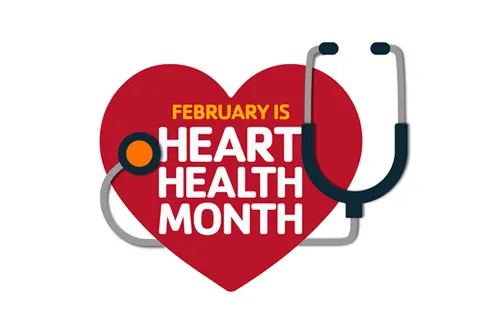Heart Health Month

Supporting Clients with Cardiovascular Conditions
As we observe Heart Health Month, it’s an important opportunity to raise awareness about cardiovascular health and emphasize the need for personalized care for those living with heart conditions. Cardiovascular disease continues to be one of the leading causes of death worldwide, making it essential for healthcare providers, families, and caregivers to offer strong support in helping individuals manage their health effectively.
Understanding Cardiovascular Conditions
Cardiovascular conditions, such as heart disease, hypertension, and stroke, impact millions of people annually. These conditions can significantly affect daily life, often requiring ongoing care and management. Personalized care is crucial in enhancing the quality of life for individuals with cardiovascular disease, helping them manage symptoms, prevent complications, and preserve their independence.
The Role of Personalized Care
Personalized care for individuals with cardiovascular conditions focuses on customizing support to meet their specific health needs, lifestyle, and preferences. This includes regular monitoring of vital signs, managing medications, and offering emotional support to help clients navigate the physical and mental challenges of living with a heart condition.
“Caring for someone with a cardiovascular condition requires a thorough, individualized approach,” says Dr. Susan Moore, a cardiologist. “Each person’s needs are unique, so it’s crucial for caregivers and healthcare providers to collaborate, ensuring patients receive the right treatments, lifestyle changes, and emotional support to enhance their overall well-being.”
Support Strategies for Caregivers
Monitoring Vital Signs: Regularly tracking blood pressure, heart rate, and cholesterol levels is vital in managing cardiovascular conditions. Caregivers should have the knowledge and tools to effectively monitor these signs and identify any potential concerns.
Encouraging a Healthy Lifestyle: Proper nutrition, regular exercise, and stress management are essential in maintaining heart health. Caregivers can play a key role in helping clients adopt healthier habits, such as meal planning and encouraging safe, appropriate physical activity.
Medication Management: Ensuring clients take their prescribed medications as directed and understanding the importance of medication adherence is crucial for preventing complications and improving heart health.
Emotional Support: Living with a cardiovascular condition can be both stressful and isolating. Providing emotional and mental health support is critical in helping clients maintain a positive outlook, stay motivated, and remain engaged in their care.

Empowering Clients for Better Heart Health
While medical care is crucial, empowering clients with the knowledge and tools to take control of their heart health is just as important. By educating individuals about their conditions and involving them in the decision-making process, caregivers help clients feel more in control and better prepared to manage their health.
“It’s essential that clients understand their condition and feel supported in making informed choices about their care,” says Emily Harris, a healthcare support coordinator. “Education, combined with compassion and practical support, is fundamental to improving the health outcomes of those with cardiovascular disease.”
Heart Health Month is a chance to prioritize the heart health of our loved ones, clients, and communities. Through personalized care, lifestyle changes, and emotional support, we can all contribute to helping individuals with cardiovascular conditions live healthier, more fulfilling lives. Let’s use this month to raise awareness, offer support, and inspire heart health throughout the entire year.